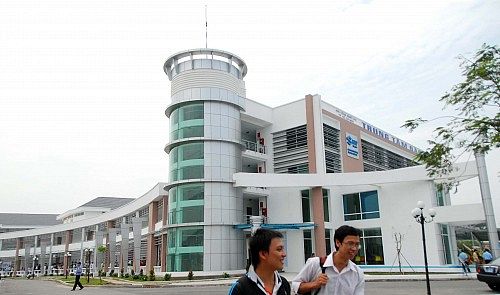GrabWheels debuted on the main campus of National University Singapore (NUS) in November last year, but a string of accidents have forced new safety measures be put in place as it moves forward.
The trial began with the distribution of eight GrabWheels parking stations that can accommodate ten e-scooters each. Riders unlock the bikes with an app and pay SG$0.20 (US$0.37) per thirty minutes of use via GrabPay. The fee includes insurance. When users are finished, the app informs them of the nearest station to where the scooter can be returned. At the end of every day, Grab employees collect, recharge and store the two-wheeled devices.
According to Grab's official website, riders are instructed never to take the vehicles on the roads and not exceed 10 km/h on footpaths and 25 km/h on shared or cycling paths. They are not intended to be taken off school grounds. The trial period was aimed at testing the application and also gaining insights into transportation needs on the campus.
GrabWheels proved an early success with more than 100,000 trips logged during the first two months. An NUS survey noted more than 96% of students liked the service and close to 80% of users drove a scooter between one and four times a week.
There were some issues, however, with a string of accidents reported. A Grab spokesman said: "A small number of injuries required hospital treatment, one of which recently involved a more serious injury."
In response to the accidents, on March 8, 2019 the school enforced a one-week timeout on the program. When explaining the decision, school authorities cited people not driving responsibly despite receiving safety reminders.
On March 16, the program was reinstated with stricter safety requirements. All users are now required to wear helmets provided at each station and undergo mandatory thirty-minute training courses conducted by vendors approved by the Land Transport Authority of Singapore. More traffic measures such as "rumble strips" are being installed on campus to remind riders to travel slowly while closed-circuit surveillance cameras are being increased to catch people who shirk the rules.
Many seem to approve of the new measures. As 22-year-old Choo Yingci, a final-year literature student at NUS, explained: "Improvements to the infrastructure would be very helpful because right now, users are scooting among crowds and quite quickly too, which may be dangerous."
Grab plans to expand the service elsewhere in Singapore in the near future. They also have expressed interest in introducing it in other nations in Southeast Asia, but admit further studies and planning must take place first.
[Photo by Kelvin Chng via Straits Times]














